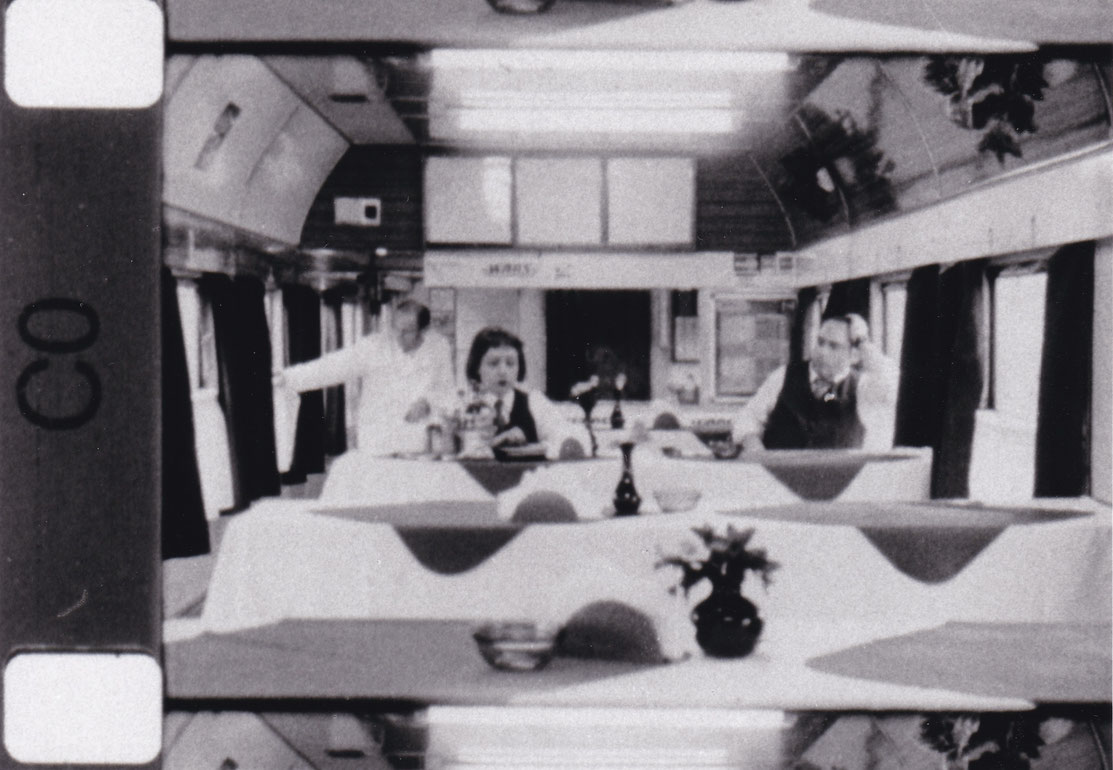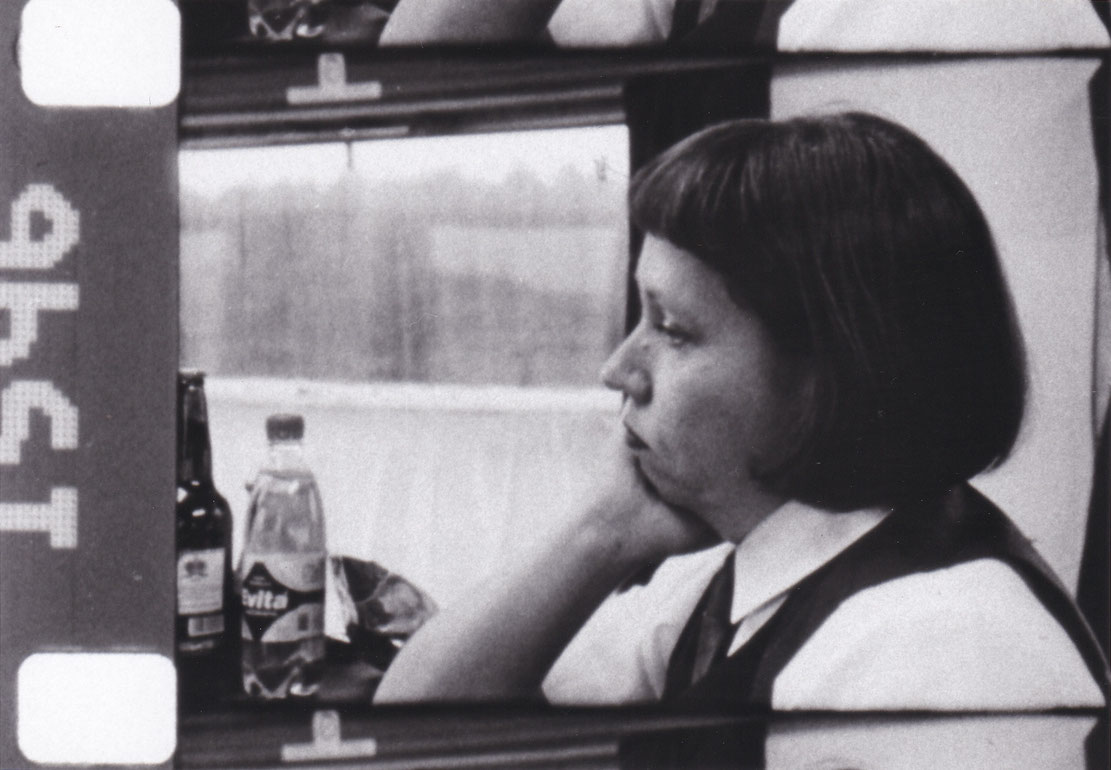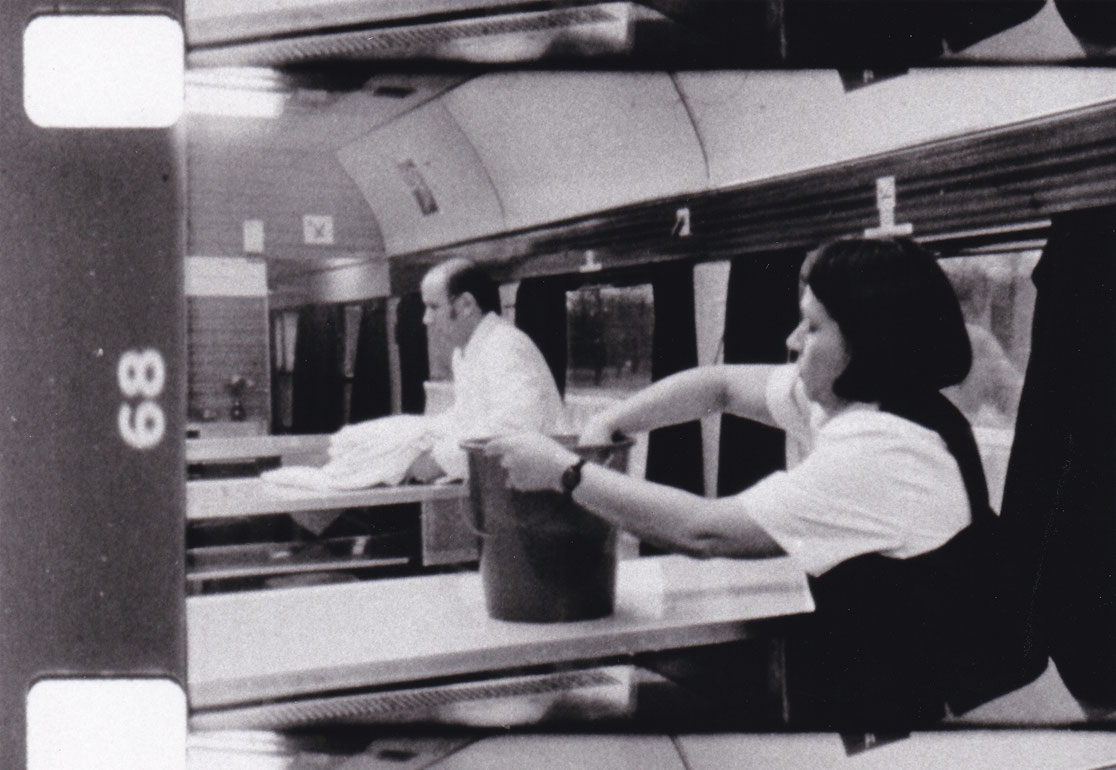WARS
Daily routine in an empty restaurant car on a long-distance train. Deserted tables, a slow-moving staff. The waiter leans at the window, unhurriedly cleaning his fingernails. The cook and the waitress bide their time patiently. Gestures of waiting. Communication no longer seems necessary, as the well-coordinated routine functions smoothly without it. Only the train´s clattering on the rails is audible - an monotonous and soothing sound. This monotony is echoed in the forced lethargy of the restaurant-car staff. It seems to be a ghost train, a train without passengers. Then the tableau comes alive as if wakened by an inaudible signal. The three figures begin to sweep and wipe: The car must be cleaned thoroughly before it reaches the terminus.
"Space is being destroyed by the train, and only time remains." This statement made by Heinrich Heine could be used as a summary of Josef Dabernig´s film. While the countryside flies past the window, the train never stops. The surroundings disappear behind it. At the same time, the atmosphere of languor in the restaurant car is tangible. Boredom dominates the inactivity and is not completely dispelled by the sudden start of cleaning. The protagonists never really practice their professions: They neither cook nor do they serve food. Precisely framed black-and-white images laconically depict the restaurant car´s Formica charm as a moving microcosm: A service job as scheduled monotony. This is an entertaining study of movement and inertia.
(Andrea Pollach)
WARS was shot in a restaurant carriage belonging to the Polish railway company PKP. The windowpane is murky, all movement passive – standstill in motion. We see an empty kitchen, a waiter leaning against a window cleaning his fingernails, an untouched array of drinks and snacks, and finally a long shot of the empty restaurant car. The room is in movement, in stark contrast to its interior, which lacks guests or narrative. The void we are discussing here is ordered and prescribed. It is not easy to define the systematic emptiness of WARS using standard expressions or binary opposites. It combines movement and stillness, passivity and activity, apathy and involvement.
(Matthias Michalka)
Business is at a standstill in the dining car of a long distance train: waitress, waiter and cook sit back and wait for diners. The air of apathetic indifference, which stems out of fatigue and working in a job below one´s ability, infects the viewer.
(Catalog of the Museum of Contemporary Art in Krakow)
--> WARS
WARS
2001
Austria
10 min



